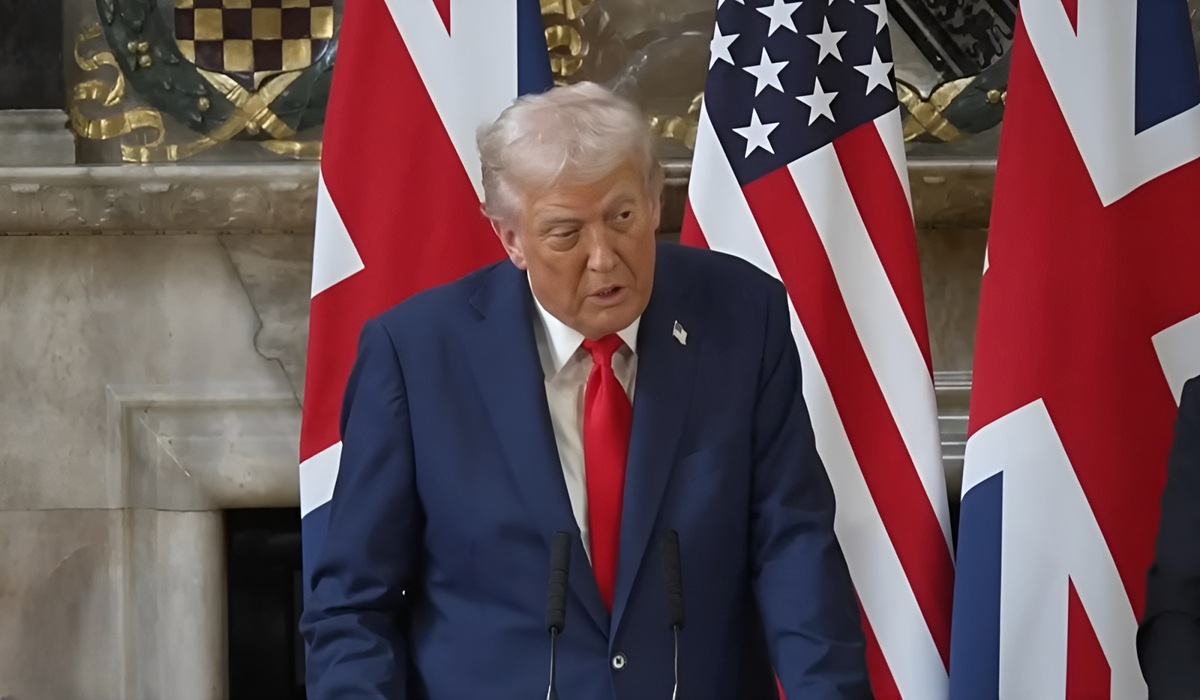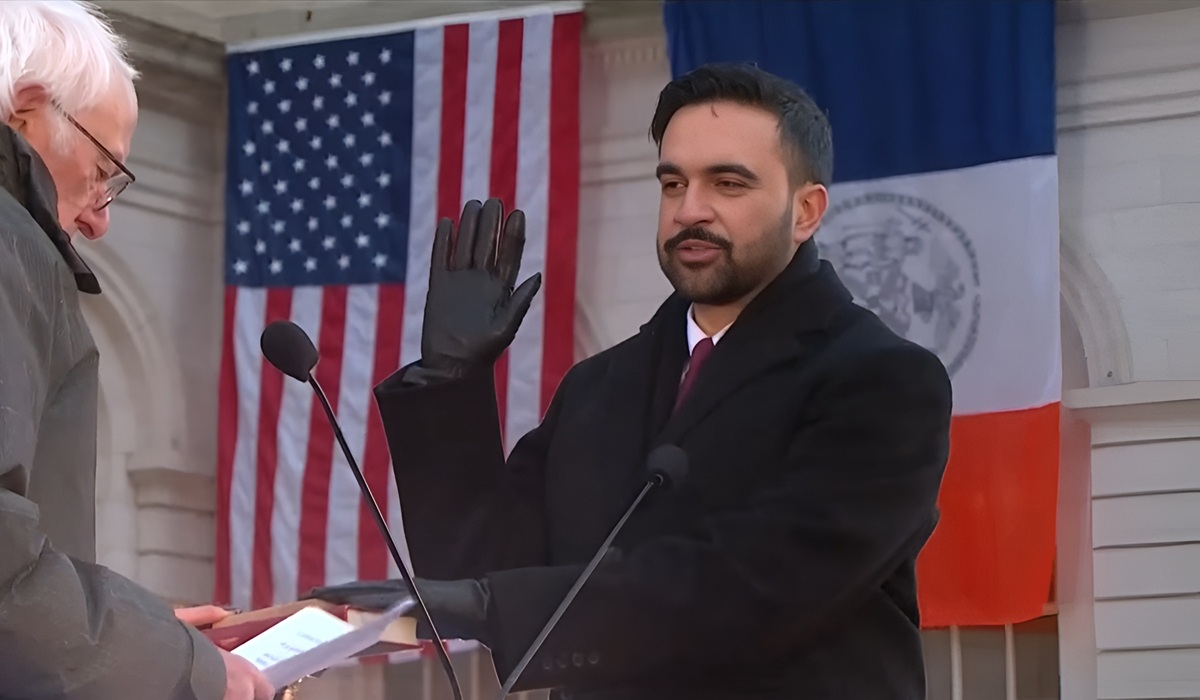Trump and Bagram: Marching Toward Another Disaster War In Afghanistan
- TDS News
- U.S.A
- September 22, 2025

By: Donovan Martin Sr, Editor in Chief
The United States once again stands at a dangerous crossroads, and this time the echoes of past mistakes sound louder than ever. President Donald Trump has demanded that Afghanistan return Bagram Air Base to American control, issuing a threat with the chilling words, “BAD THINGS ARE GOING TO HAPPEN!!!” if the Taliban does not comply. It is a message that drags America back into the shadows of a war it already lost, into a conflict that consumed generations, billions of dollars, and hundreds of thousands of lives. That threat should send shivers down the spine of every American, because if history has taught us anything, it is that war for the United States is less a choice than a compulsion—a disease of empire that America cannot seem to cure.
Bagram is not just a base. It was the crown jewel of U.S. operations in Afghanistan, the central hub from which two decades of airstrikes, logistics, and military campaigns radiated. Its fall in 2021 was symbolic of America’s retreat, its collapse, and the painful admission that twenty years of occupation had not secured the goals laid out after 9/11. For Trump, demanding its return is not about nostalgia; it is about strategy. He has said openly that Bagram’s location is essential, pointing to its proximity to Chinese nuclear facilities. To him, the base is not just a piece of Afghan soil but a potential staging ground in the broader contest with Beijing. Yet what his threat ignores is the reality of who controls that soil now, and what kind of fight would unfold if America attempts to seize it again.
The Taliban have made their position clear: Bagram belongs to Afghanistan, and no foreign power has the right to demand its return. Their spokesman has said they will not surrender “an inch of territory,” and their military leaders insist they are ready to resist any attempt to reassert foreign control. Unlike in 2001, they are not armed merely with rifles and guerrilla tactics. Today the Taliban holds almost $100 billion worth of U.S. military hardware left behind during the chaotic withdrawal. They have Apache helicopters, Abrams tanks, drones, night-vision equipment, advanced rifles, armored vehicles, and an arsenal of missiles. Weapons that once symbolized America’s military superiority now lie in the hands of the very group the U.S. spent two decades trying to defeat. If American troops return, they will face their own machinery, turned back against them in a war that will not be quick, clean, or decisive.
Consider the bloody arithmetic of the first war. Over 2,400 American soldiers died, with tens of thousands more injured. Coalition forces were dragged into a war they did not fully support, losing their own people for a mission without end. Afghan civilians bore the worst of it, with estimates of civilian deaths reaching into the hundreds of thousands. Entire villages were destroyed, families shattered, and generations traumatized. Trillions of dollars were poured into the sand, feeding not the Afghan people but the endless appetite of defense contractors and military contractors who profited at every turn. And for what? At the end of twenty years, the Taliban stood taller than ever, in possession of more power and more resources than they had in 2001. The United States left in defeat, humiliated before the world. To imagine that retaking Bagram now would produce a different outcome is to indulge in fantasy.
Yet this is America’s pattern. War is not an occasional policy—it is the default. Since World War II, the U.S. has not won a single major conflict. Vietnam ended in helicopters fleeing Saigon as North Vietnamese forces closed in. Iraq, sold on lies of weapons of mass destruction, descended into sectarian violence that still rages today. Libya was bombed into chaos, its leader killed, leaving a failed state and fertile ground for terrorism. Syria was destabilized, its civil war prolonged by American intervention, with no victory in sight. Afghanistan, the longest war in U.S. history, ended not in triumph but in chaos. And yet here we are again, with a sitting president threatening to reignite the very war that America could not win over twenty years. How many times does a nation need to burn its hand before it learns the fire will always leave scars?
The ugly truth is that America cannot let go because war feeds its system. The military-industrial complex that President Eisenhower warned about decades ago is alive and stronger than ever. Defense companies lobby Congress, pour money into elections, and fund the campaigns of politicians who in turn approve ever larger defense budgets. Each missile launched, each jet ordered, each base occupied turns into profit margins for companies whose lifeblood depends on perpetual conflict. Trump may speak in blunt terms, threatening nations with “bad things” if they do not bend, but behind him stands a machine that thrives on those threats. War is not only policy—it is business, and business is booming. Bagram is not just a strategic asset, it is a financial one.
What makes this moment particularly dangerous is the prospect of unilateral action. Trump has suggested that if Congress refuses to act, he could order military strikes himself. With a Republican majority in Congress, approval of a military campaign is not unthinkable. But even without it, the precedent of presidents bypassing legislative approval is well established. Trump could, with the stroke of a pen, order troops, planes, and bombs back into Afghanistan. And unlike the wars of the past, where international coalitions reluctantly joined, this time America would be alone. NATO allies are weary, scarred from Afghanistan, and unwilling to follow the U.S. into another unwinnable war. A new invasion would not be shared—America would bear the burden alone, and the casualties would fall squarely on American shoulders.
And let us be clear: casualties would be immense. The Taliban today are not the Taliban of 2001. They are battle-hardened, flush with equipment, and ruling from a position of power rather than exile. An American attempt to seize Bagram would be met with fierce resistance, and the war could easily spiral into something bloodier than the first. Imagine the sight of American helicopters shot down by American-made missiles. Imagine Abrams tanks, once paraded by U.S. forces, now blasting apart the same troops who left them behind. It is not just the horror of combat—it is the grotesque irony of a superpower undone by its own weapons. And all for what? To reclaim a base that cannot bring stability, cannot undo the failures of the past, and cannot rewrite the history of defeat.
The American people deserve to ask why. Why does this nation return to the battlefield again and again, as if addicted to pain and destruction? Why are young men and women sent to die in lands they do not understand, against enemies who grow stronger each time America intervenes? Why must entire generations of Afghans suffer yet again under the weight of foreign bombs and invading armies? The answer is not noble. It is not about freedom, democracy, or security. It is about contracts, profits, and the insatiable hunger of an empire that cannot accept limits to its power. Trump’s Bagram ultimatum is not an isolated act of bravado. It is the symptom of a deeper sickness in the American body politic—a sickness that confuses domination with survival and war with destiny.
It is time to speak with brutal honesty. America does not win wars anymore. It destroys, it destabilizes, it leaves wreckage, but it does not win. It has not since 1945. Every intervention since has ended in stalemate, defeat, or disaster. If the U.S. marches back into Afghanistan to seize Bagram, the outcome will not be different. It will be the same blood, the same tears, the same funerals draped in flags, the same hollow speeches about sacrifice, the same photographs of rubble where homes once stood. The only victory will belong to those who sell the weapons, those who write the contracts, those who cash the checks.
Eisenhower’s words resonate more now than ever: every warship launched, every gun manufactured, every rocket fired is theft from the poor, the hungry, and the cold. And today, as Trump rattles sabres and threatens another invasion, that theft is poised to expand yet again. What is stolen is not just money but lives, hope, and the chance for a future not defined by endless war. Trump may demand Bagram back, but what he truly demands is another round of bloodletting in the name of a country that cannot admit its own limits. And if America does not resist this path, if it follows once more into the abyss, it will not be reclaiming its strength—it will be burying it in Afghan soil once again.








